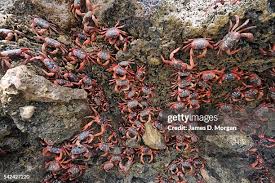The Importance of Wolves in Ecosystems and Conservation Efforts
Introduction
Wolves, often regarded as symbols of wilderness, play a crucial role in maintaining the health of ecosystems. As apex predators, they influence prey populations and the overall balance within their habitats. In recent decades, the conservation of wolf populations has gained importance due to their diminishing numbers and the ecological consequences that may arise from their loss.
Wolves: Key Facts and Features
There are several species of wolves worldwide, with the grey wolf (Canis lupus) being the most widely recognised. Wolves are social animals, living in packs that typically comprise a breeding pair and their offspring. Their social structure is vital for their hunting strategies and cooperative behaviours, allowing them to take down larger prey.
Recent Developments in Wolf Conservation
In recent years, the status of wolves has been a focal point for wildlife conservationists. In the United States, the grey wolf was removed from the endangered species list in 2020, leading to discussions regarding management strategies aimed at balancing ecological needs and human interests. This decision has sparked significant debate among environmentalists, livestock owners, and policymakers. While some argue that wolf populations should be regulated to protect livestock, others contend that healthy wolf populations are essential for ecosystem balance.
Efforts to reintroduce wolves into their former habitats have been successful in some areas. In Yellowstone National Park, for example, the reintroduction of grey wolves in 1995 has reportedly led to a resurgence in biodiversity and changes in the behaviour of herbivores, ultimately promoting healthier vegetation systems. This phenomenon highlights the importance of wolves in shaping not only their immediate environment but also the larger ecosystem.
Conclusion
As apex predators, wolves are integral to their ecosystems’ functionality. Understanding their behaviours and ecological roles is critical for effective conservation strategies. With ongoing debates about their management and conservation status, it is crucial for stakeholders—including scientists, conservationists, and the public—to work collaboratively to ensure the future stability of wolf populations. Engaging in informed discussions about their significance can help foster a culture of coexistence between wolves and human interests, aspiring towards a balanced and thriving ecosystem.








